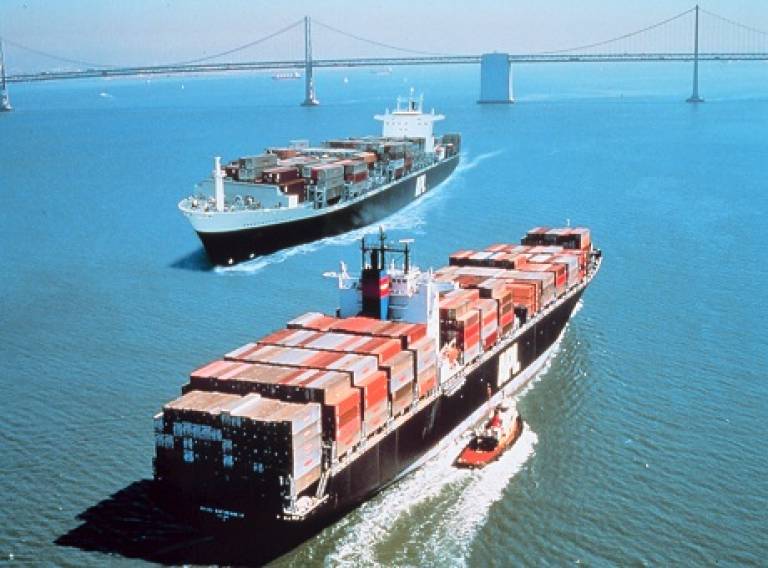UCL-Energy's Dr Tristan Smith talks shipping carbon emissions at Britain and the Sea Conference
8 September 2015

The fourth Britain and the Sea Conference (BATS4) is organised by the Maritime Foundation in cooperation with Plymouth University, and brings together leading maritime experts and senior members of the Royal Navy to explore the balance between commercial opportunity, security and defence in a globalised trading economy.
This morning, as part of BATS4, Dr Tristan Smith, Director Shipping in Changing Climates (SCC) Project discussed the subject of global warming and the restrictions on carbon emissions and their impact on the international shipping industry. This topic will become increasingly relevant in the lead up to the Paris climate talks taking place at the end of the year.
Included in his discussion was a joint report by UCL Energy Institute and the Manchester University Tyndall Centre presented at the IMO MEPC 68. This report suggested cutting the shipping sector’s CO2 emissions in line with global climate change targets will need an approach that goes beyond current regulations. There is wide gap between what is needed to avoid 1.5/2°C of warming, compared with the current direction of travel of shipping CO2. The analysis shows how avoiding 1.5/2°C, whilst maintaining shipping’s present 2-3% share of total anthropogenic CO2, requires at least a halving of its CO2 emissions by 2050.
At the London International Shipping Week, as part of the Shipping in Changing Climates project, UCL Energy and UCL Laws will also be looking at the role of non-government actors and private standards in shipping and evaluating their ambition to drive decarbonisation of the industry.
 Close
Close

